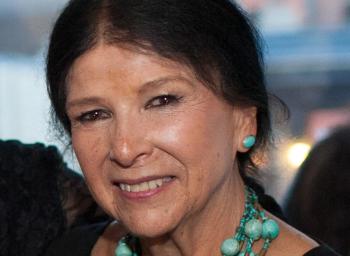There is now more than 40 works by film-maker Alanis Obomsawin available for free streaming at https://www.nfb.ca. Obomsawin’s work spans more than a half-century of storytelling and activism.
The National Film Board site is home to a large collection of films by Indigenous directors via its Indigenous Cinema webpage, but as of today, with the additional Obomsawin’s films, it becomes an “indispensable destination for powerful, ground-breaking Indigenous cinema,” reads a release.
A member of the Abenaki Nation and one of Canada’s most distinguished filmmakers, Obomsawin devotes herself to chronicling the lives and concerns of First Nations people, with a particular focus on the well-being of children.
Online now is Our People Will Be Healed, taking viewers inside a unique school in the Cree community of Norway House, north of Winnipeg, where students develop a sense of pride in who they are and a hope for the future.
Hi-Ho Mistahey! chronicles “Shannen’s Dream”, a national campaign to provide equitable access to education in safe and suitable schools for First Nations children.
There are also classics from deeper inside Obomsawin’s incredible body of the work, with short films from the 1970s like Amisk and her early series L’il’wata and Manawan.
These newly-featured works join films already online, such as Kanehsatake: 270 Years of Resistance, Richard Cardinal: Cry from a Diary of a Métis Child, Incident at Restigouche and more.
Obomsawin’s latest work is Jordan River Anderson, The Messenger—her 53rd film, completed in the 52nd year of her legendary career—which is being acclaimed at film festivals across Canada this fall.
In addition to being a film-maker and activist, Obomsawin is an accomplished visual artist and performer whose work was featured this past summer at the Montreal Museum of Fine Arts. She was also recently named a Companion of the Order of Canada.

